
Plateau: The Vibrant Heartbeat of Abidjan
Plateau, the bustling central business district of Abidjan, is a must-visit for tourists seeking a blend of modernity and cultural heritage. As the economic powerhouse of Côte d'Ivoire, it boasts an impressive skyline adorned with towering skyscrapers, governmental buildings, and luxury hotels. This area is often referred to as the 'Manhattan of Abidjan,' offering a dynamic atmosphere that pulsates with the rhythm of commerce and daily life. Exploring Plateau, visitors will find a myriad of attractions, from the imposing St. Paul's Cathedral with its stunning architecture to the tranquil Banco National Park, which provides a peaceful escape from the city's hustle and bustle. The district is also home to numerous art galleries, museums, and cultural centers, where one can delve into the rich history and vibrant artistry of the Ivorian people. Food lovers will be delighted by Plateau's diverse culinary scene. From upscale restaurants serving gourmet dishes to street vendors offering delicious local delicacies, there is something to satisfy every palate. In the evenings, the neighbourhood comes alive with a variety of nightlife options, including chic bars, lively nightclubs, and cultural performances that showcase the vibrant spirit of Abidjan.
Local tips in Plateau
- Visit Banco National Park early in the morning to enjoy the serene environment and avoid the midday heat.
- Dress modestly when visiting St. Paul's Cathedral to show respect for local customs.
- Try the local street food, especially the grilled fish, which is a popular delicacy.
- Be mindful of pickpockets in crowded areas and keep your valuables secure.
- Use taxis or ride-sharing apps to get around, as public transportation can be crowded and confusing.
- Learn a few basic French phrases to help with communication, as it is the primary language spoken in Plateau.
Unmissable attractions to see
Place Of The Republic (Ivory coast)
Explore Ivory Coast's political heart at Place of the Republic, a historical museum in Abidjan's bustling Plateau district.
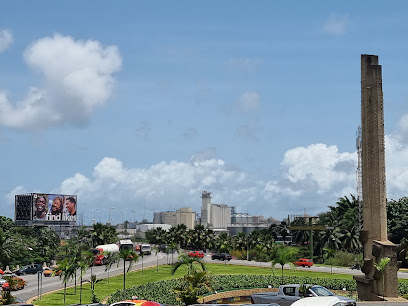
Parc Bréssole Au Plateau
Experience the serene beauty of Parc Bréssole Au Plateau, a lush urban park in Abidjan perfect for relaxation and local culture.
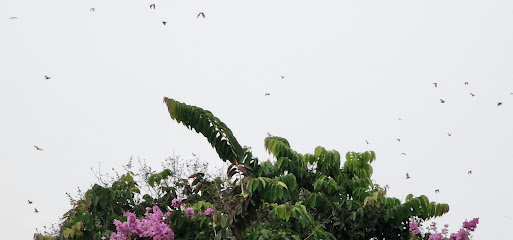
Jardin public à côté de la lagune
A tranquil lagoon-side park in Abidjan's Plateau, perfect for relaxation and enjoying Abidjan's natural beauty, though currently closed.

Essential places to dine
Restaurant Saakan
Experience the essence of Ivorian cuisine blended with international flavors at Restaurant Saakan in Abidjan.
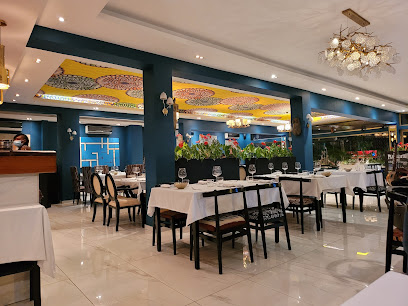
La Taverne Romaine
Discover La Taverne Romaine: An exquisite restaurant in Abidjan offering a blend of Ivorian and international cuisine in an elegant setting.
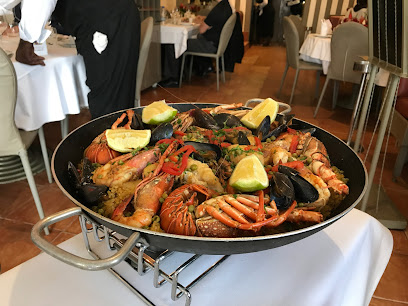
Chez Georges Resto
Discover the flavors of Ivory Coast at Chez Georges Resto—where tradition meets taste in the heart of Abidjan.
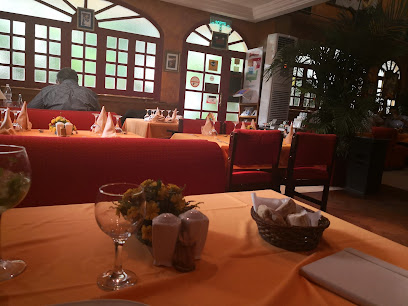
Restaurant Chez Marcene
Experience culinary excellence at Restaurant Chez Marcene in Abidjan - where local flavors meet international cuisine in an elegant setting.
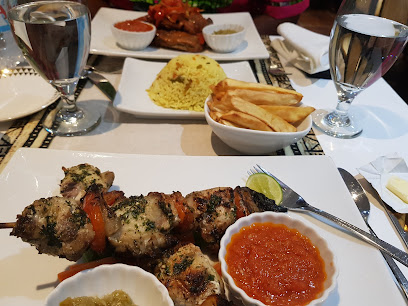
La Croisette
Savor the exquisite flavors at La Croisette, Abidjan's premier restaurant blending local tastes with international cuisine.
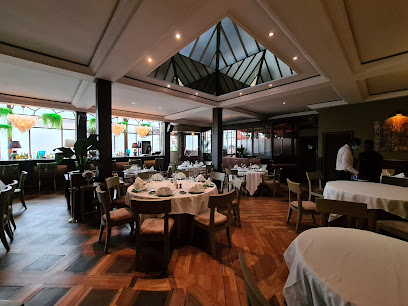
Nama Restaurant
Experience the best of Ivorian and international cuisine at Nama Restaurant in Abidjan - a must-visit culinary destination.
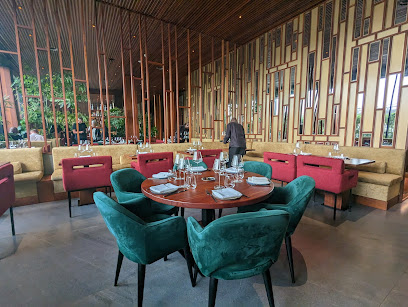
RestauTresor
Experience the vibrant flavors of Ivorian cuisine at RestauTresor, Abidjan's premier restaurant and catering service.
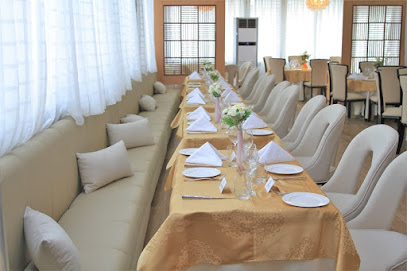
Happy Hours
Discover the vibrant flavors of Côte d'Ivoire at Happy Hours in Abidjan—where culinary delight meets local culture.
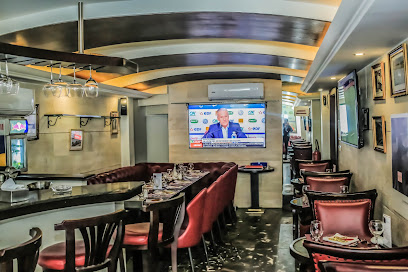
Brasserie L'Endroit
Experience the vibrant flavors of Ivorian cuisine at Brasserie L'Endroit, a culinary gem in Abidjan's bustling Plateau district.
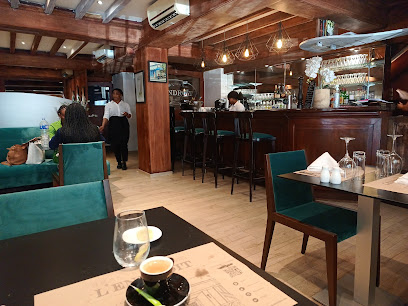
Passion & Cannelle
Discover the culinary artistry at Passion & Cannelle in Abidjan – where every dish tells a story.
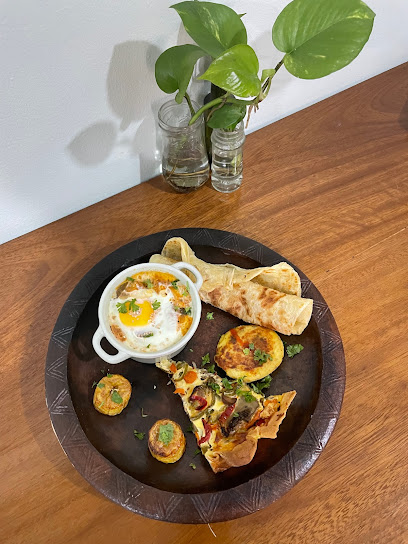
Markets, malls and hidden boutiques
Cap Sud
Discover Cap Sud, Abidjan's vibrant shopping mall offering a mix of local and international brands, dining, and entertainment for a perfect day out.
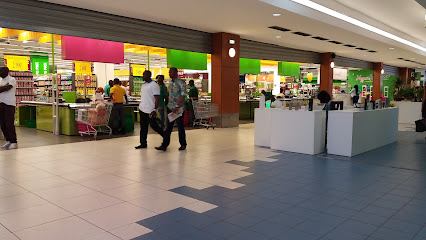
Sococe Mall
Experience shopping, dining, and entertainment at Sococe Mall, a vibrant hub in Abidjan offering endless options for visitors.
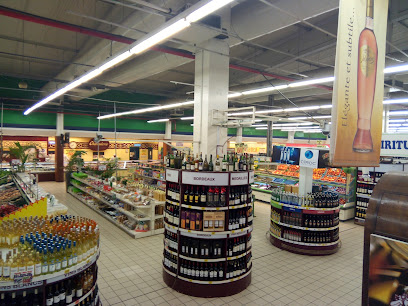
Abidjan Mall
Discover the vibrant shopping and dining experiences at Abidjan Mall, the premier destination for locals and tourists in Ivory Coast.
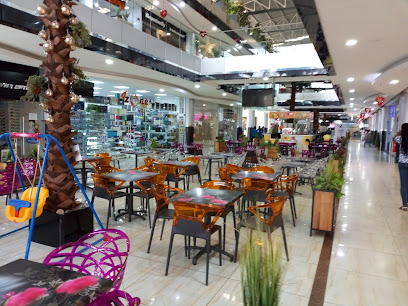
Galerie du Parc
Explore Galerie du Parc, Abidjan's premier shopping mall, where vibrant retail, dining, and entertainment come together in an unforgettable experience.
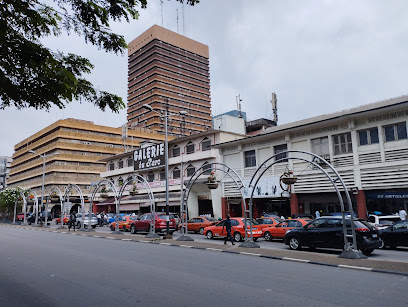
Galeries Peyrissac Côte d'Ivoire
Discover the unique charm of Galeries Peyrissac, Abidjan's premier destination for home goods, blending local craftsmanship with diverse styles.
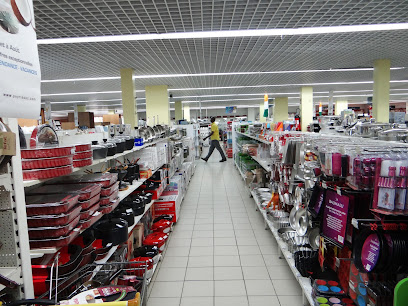
Woodin Plateau
Experience the essence of African fashion at Woodin Plateau, where tradition meets modern style in the heart of Abidjan.
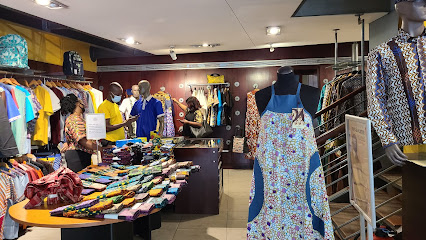
La Boutique Paysanne
Discover the authentic flavors of Côte d'Ivoire at La Boutique Paysanne, a charming grocery store in Abidjan's Plateau neighborhood.
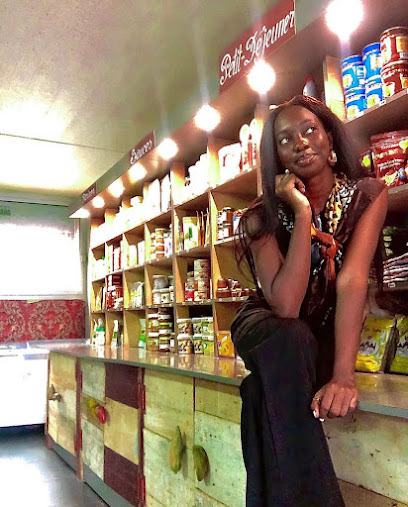
Abidjan Duty Free Shop
Discover luxury shopping at the Abidjan Duty Free Shop, where exclusive deals on premium brands await every traveler.
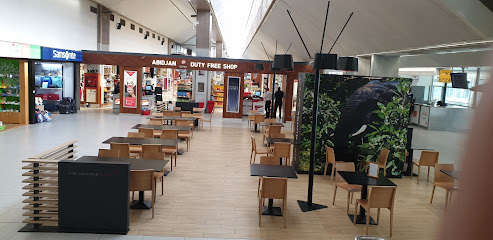
AMIRAL BOUTIQUE
Explore the vibrant fashion scene at Amiral Boutique, where local craftsmanship meets modern trends in the heart of Abidjan.
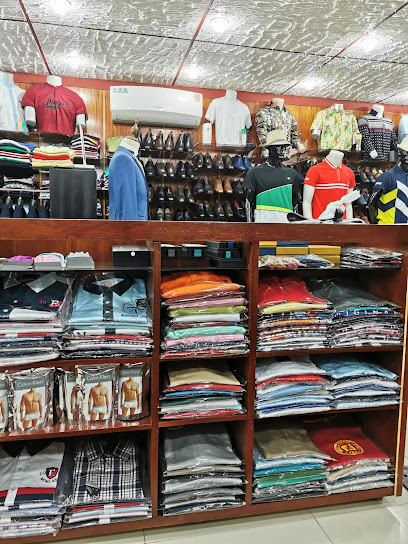
BOUTIQUE SAMSUNG (Réprésentant No1)
Explore innovative technology and exceptional service at the Boutique Samsung in Abidjan's vibrant Plateau district.
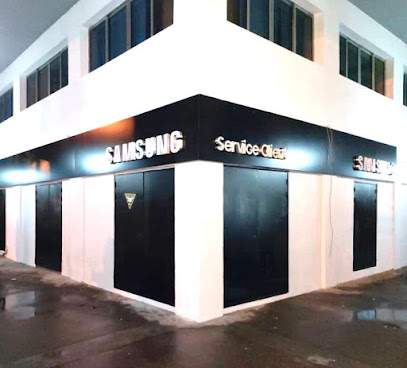
Essential bars & hidden hideouts
Life Star
Discover Life Star, Abidjan's premier bar for exquisite cocktails and vibrant nightlife in the heart of Plateau.
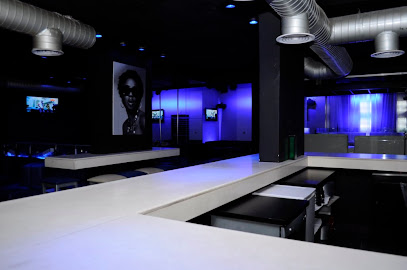
Restaurant Piano bar filjim
Experience the fusion of French and African cuisine at Restaurant Piano Bar Filjim in Abidjan, where delightful dishes meet vibrant live music.
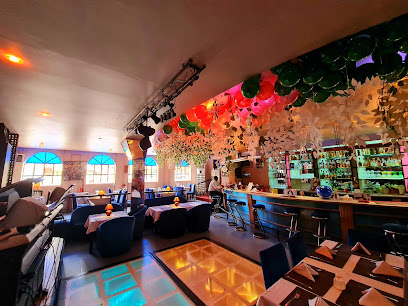
Happy Hours
Experience the vibrant flavors and lively atmosphere at Happy Hours, a top restaurant in Abidjan, Côte d'Ivoire, perfect for tourists and locals alike.
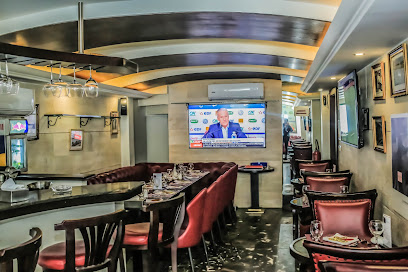
MONAK ABIDJAN
Discover the essence of Abidjan's nightlife at MONAK ABIDJAN, a luxurious lounge offering exquisite drinks and a stylish ambiance.
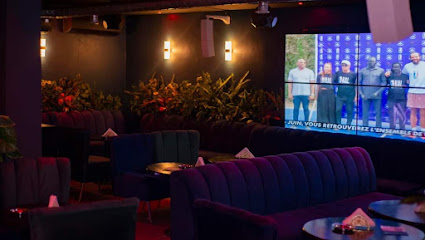
Zo Bar (Noom Hôtel)
Discover the vibrant nightlife of Abidjan at Zo Bar in Noom Hôtel, where exquisite cocktails and lively ambiance await your arrival.
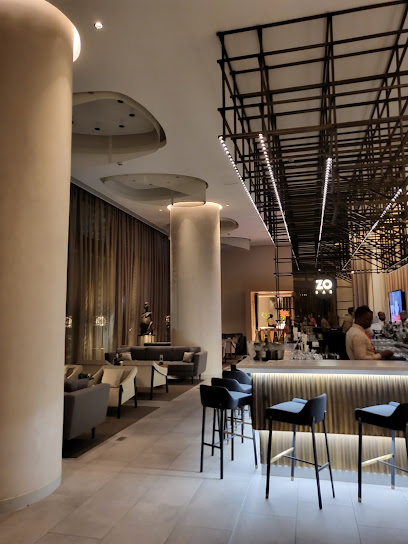
LE BEFORE PlATEAU
Discover the vibrant nightlife of Abidjan at LE BEFORE PlATEAU, a trendy lounge offering exquisite cocktails and an unforgettable atmosphere.
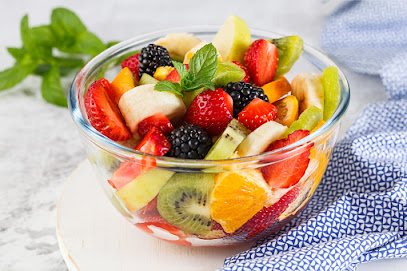
Mama's Bar
Discover the vibrant nightlife of Abidjan at Mama's Bar, where drinks flow and the atmosphere is always lively.
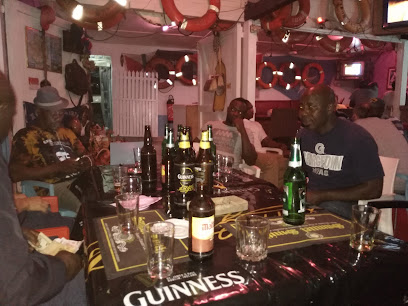
Boca Chica Club Bar & Cigare Lounge
Experience the vibrant nightlife at Boca Chica Club Bar & Cigare Lounge, where fine drinks and premium cigars await in the heart of Abidjan.
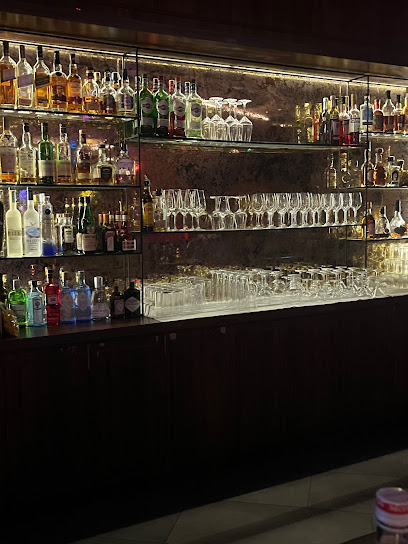
Dieket BAR
Explore the vibrant nightlife of Abidjan at Dieket BAR, where local drinks and lively entertainment await you.
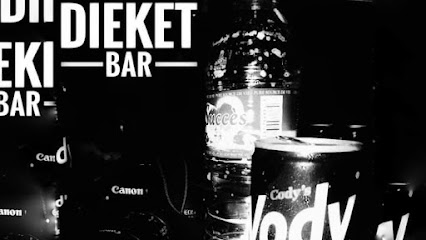
Navigator bar
Experience the vibrant nightlife at Navigator Bar in Abidjan, where cocktails and culture blend seamlessly for an unforgettable evening.

Local Phrases
-
- HelloBoua
[Boh-wah] - GoodbyeTchaw
[Chah-ow] - YesAwa
[Ah-wah] - NoEh
[Eh] - Please/You're welcomeMai tchie/An tchie
[My chay/Ahn chay] - Thank youMai tchou
[My choh] - Excuse me/SorryTchou tchou
[Choh choh] - How are you?I ni sara?
[Ee nee sah-rah?] - Fine. And you?Ni sara. I ni?
[Nee sah-rah. Ee nee?] - Do you speak English?I ni tchli Anglè?
[Ee nee chlee Ahn-glay?] - I don't understandI n tchie koussi
[Ee n chay koo-see]
- HelloBoua
-
- I'd like to see the menu, pleaseNi tchou voir tchou menu, mai tchie
[Nee choh vwar choh menu, my chay] - I don't eat meatI n tchie miam-miam
[Ee n chay myahm-myahm] - Cheers!Santé!
[Sahn-tay!] - I would like to pay, pleaseNi tchou payer, mai tchie
[Nee choh pie-yay, my chay]
- I'd like to see the menu, pleaseNi tchou voir tchou menu, mai tchie
-
- Help!Au secours!
[Oh seh-coor!] - Go away!Ale!
[Ah-lay!] - Call the Police!I ni appeler la Police!
[Ee nee ah-peh-lay lah Poh-leece!] - Call a doctor!I ni appeler un docteur!
[Ee nee ah-peh-lay uh doh-kuhr!] - I'm lostNi tchou perdu
[Nee choh pair-doo] - I'm illNi malade
[Nee mah-lahd]
- Help!Au secours!
-
- I'd like to buy...Ni tchou acheter...
[Nee choh ah-shetay...] - I'm just lookingI tchou wari-wari
[Ee choh wah-ree-wah-ree] - How much is it?Kombien ca coute?
[Kohm-byen sah koot?] - That's too expensiveCa coute trop cher
[Sah koot troh shay] - Can you lower the price?I ni baisser le prix?
[Ee nee bay-say lay pree?]
- I'd like to buy...Ni tchou acheter...
-
- What time is it?Kombien l'heure?
[Kohm-byen luhrr?] - It's one o'clockIl est une heure
[Eel eh oon uhrr] - Half past (10)Dix heures et demie
[Dee-ss uhrr eht duh-mee] - MorningMatin
[Mah-tahn] - AfternoonAprès-midi
[Ah-pray mee-dee] - EveningSoir
[Swah-r] - YesterdayHier
[Yehr] - TodayAujourd'hui
[Oh-zhoor-dwee] - TomorrowDemain
[Duh-mahn] - 1Un
[Oon] - 2Deux
[Duh] - 3Trois
[Twa] - 4Quatre
[Kah-truh] - 5Cinq
[Sank] - 6Six
[Sees] - 7Sept
[Set] - 8Huit
[Weet] - 9Neuf
[Nuff] - 10Dix
[Dee-ss]
- What time is it?Kombien l'heure?
-
- Where's a/the...?Où est...?
[Oo eh...] - What's the address?Quelle est l'adresse?
[Kell eh lah-dress?] - Can you show me (on the map)?I ni montrer (sur la carte)?
[Ee nee mohn-tray (soor lah kart)?] - When's the next (bus)?Quand est le prochain (bus)?
[Kahnd eh luh proh-shain (bus)?] - A ticket (to ....)Un billet (pour...)
[Oon bee-yay (poor...)]
- Where's a/the...?Où est...?
History of Plateau
-
Plateau, the business and administrative center of Abidjan, was established during the French colonial period in the late 19th and early 20th centuries. The French envisioned Abidjan as the capital of Côte d'Ivoire, and Plateau was designed to reflect Western urban planning ideals. Wide boulevards and colonial architecture emerged, setting the stage for the city’s modern development.
-
Following Côte d'Ivoire's independence in 1960, Plateau continued to thrive as the political and economic heart of the nation. Major government buildings and corporate offices were established, symbolizing the new nation's aspirations. The architecture from this era showcases a blend of modernist and traditional Ivorian styles, reflecting the country's cultural identity.
-
Plateau is not only the administrative hub but also a cultural melting pot. The neighbourhood hosts numerous cultural institutions, including the Palais de la Culture, which promotes Ivorian arts and traditions. Annual events and festivals celebrated in Plateau highlight the rich diversity of Côte d'Ivoire's ethnic groups, showcasing music, dance, and culinary traditions.
-
In the late 20th and early 21st centuries, Plateau underwent significant urban development and modernization efforts. Skyscrapers began to dominate the skyline, and infrastructure improvements transformed the area into a vibrant urban center. This period saw the introduction of modern amenities and transport systems, catering to a growing population and economic activities.
-
The political turmoil in Côte d'Ivoire during the early 2000s had a profound impact on Plateau. Despite the challenges, the neighbourhood demonstrated resilience, with continued efforts to maintain its role as the country's economic and cultural leader. Post-crisis recovery initiatives focused on rebuilding trust and fostering unity among the diverse communities within Plateau.
Plateau Essentials
-
Plateau is located in the heart of Abidjan, making it accessible from various neighborhoods. You can reach Plateau from the Abidjan International Airport (Félix Houphouët-Boigny Airport) by taxi, which takes about 30 minutes depending on traffic. Alternatively, you can use local buses or 'gbaka' (minibuses) that connect to Plateau from neighborhoods like Cocody and Yopougon. The journey by bus typically takes 45 minutes to an hour.
-
Plateau is best navigated on foot due to its central location and pedestrian-friendly areas. Taxis are readily available and can be hailed on the street or booked via mobile apps. Public transport options include the 'gbaka' minibuses, which are a fast way to travel within the area. For a unique experience, consider renting a bicycle to explore the city at your own pace.
-
Plateau is generally safe for tourists during the day, but precaution is advised at night. Areas to be cautious of include certain parts of the central market and side streets after dark, where petty crime can occur. Always keep your belongings secure and be aware of your surroundings, especially in crowded areas.
-
In an emergency, dial 112 for police assistance and 15 for medical emergencies in Côte d'Ivoire. Local hospitals and clinics are available in Plateau, with some equipped to handle international patients. It's recommended to have travel insurance that covers medical emergencies. For minor health concerns, pharmacies are readily available.
-
Fashion: Do dress modestly, particularly in religious sites. Avoid overly revealing clothing. Religion: Do respect local customs; it’s polite to greet with 'Bonjour' and shake hands. Public Transport: Do give up your seat for the elderly and pregnant women. Don't eat or drink on public transport. Greetings: Do greet with a warm handshake and a smile. Eating & Drinking: Do try local street food and accept food offerings. Don’t refuse hospitality, as it can be seen as offensive.
-
To experience Plateau like a local, visit the vibrant markets, particularly the Marché de Treichville for fresh produce and local crafts. Engage with vendors and locals, as they are often welcoming and can share valuable insights about the area. Don’t miss the stunning architecture of the Presidential Palace and the nearby St. Paul’s Cathedral. For a cultural experience, check out local music events or dance performances in the area.
Nearby Cities to Plateau
-
Things To Do in Yamoussoukro
-
Things To Do in Sassandra
-
Things To Do in Takoradi
-
Things To Do in Sekondi-Takoradi
-
Things To Do in Sunyani
-
Things To Do in San-Pédro
-
Things To Do in Kumasi
-
Things To Do in Cape Coast
-
Things To Do in Daloa
-
Things To Do in Koforidua
-
Things To Do in Accra
-
Things To Do in Ho
-
Things To Do in Kpalimé
-
Things To Do in Wa
-
Things To Do in Sanniquellie



